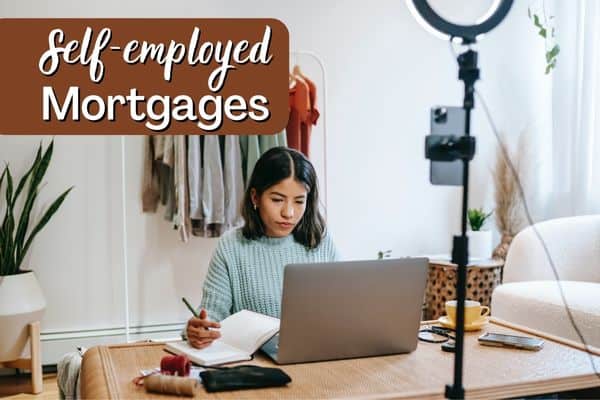Self-employed applicants may face strict eligibility criteria when applying for a mortgage with mainstream lenders that can affect the Borrow Mortgage Self Employed. But there are plenty of lenders that specialise in self-employed mortgages and take a flexible approach to calculating borrowing capacity. In this article, we’ll explain how to find the right lender if you’re self-employed, how to increase your chances of approval and why a specialist broker is your best route to securing the lowest rate.
Getting a mortgage when you’re self-employed can be difficult. Mortgage lenders tend to prefer people in full-time employees because it’s easier for them to understand their income. But don’t let anyone tell you that a Mortgage Works For Intermediaries Service Levels isn’t possible. Here’s what you need to know.
The first question when you start looking at buying a home is ‘How much can I borrow?’ For the Self-Employed it’s sometimes a little more complex to prove your income and set your property budget, so here’s what you need to know.
Being self-employed, your income isn’t as straightforward as it would be if you were on a salary. Sometimes it might change month to month. But this shouldn’t mean you struggle to get a mortgage. Often, Borrow Mortgage Self Employed people earn MORE money than if they were on a salary, which should mean you’re more attractive to mortgage lenders. But a lot of mortgage lenders just aren’t set up to deal with complex incomes.
Can I get a mortgage when Self-Employed?
Self-Employment is rarely a barrier to getting a mortgage. As long as you have a good deposit and enough income to pay your monthly mortgage repayments, you should be able to buy a home.

The key question is how much you could borrow. The size of your loan is usually calculated based on your annual income.
How much can I borrow when Self-Employed?
Borrow Mortgage Self Employed usually offer an applicant four to five times their annual income. For the Self-Employed this can be the biggest challenge – to make sure that the lender recognises your full income in making this calculation.
This is partly why it’s so important to have your business and tax records handy, to illustrate your earnings. Having a good Mortgage Broker on your side will also help you find the most appropriate lender for your situation.
If you want to borrow a larger amount, you could potentially explore a joint mortgage with a partner or family member. With joint mortgages, lenders base the total loan amount on your combined incomes, which should mean you can borrow more.
How to maximise your borrowing potential if you’re self-employed
Ultimately, the maximum amount you can borrow rests on how closely you match a lenders’ risk profile. Being more eligible for a mortgage means more lenders and deals to choose from, which can indirectly affect the amount you could borrow.

With many mainstream lenders, Borrow Mortgage Self Employed is a red flag under some circumstances, but it doesn’t necessarily mean you won’t be approved.
If, for example, you are a self-employed professional such as a doctor or solicitor, you may well be able to borrow up to 6 times your salary. These professions are considered extremely secure and have good potential for large increases in income, so you can often access higher income multiples earlier in your career.
Even specialist lenders who don’t assess applications according to strict criteria, have general guidelines that they follow.
How much can you borrow on a buy to let mortgage?
Being a landlord is a form of self-employment. And thankfully, lender appetite for buy to let mortgages is pretty high.
Affordability is calculated differently with buy to let. In most cases you will need to demonstrate that the rental income will cover at least 125% of the mortgage payments – and in some cases as much as 140%.
Deposit requirements are stricter and you will need a minimum 15% to apply so the maximum LTV is 85%.
Some lenders insist on a minimum annual wage of £20,000 and lending decisions are based on your entire income, not just the BTL aspect of it. Standard eligibility criteria such as income and expense and credit history will be taken into account too.
How do I improve my chances of mortgage approval?

The secret to successful mortgage applications is to meet all of the lender’s criteria – which is why it’s so helpful to have the support of a Borrow Mortgage Self Employed. We’ll look at your income, deposit, credit history and property plans to set your property budget and find you a suitable mortgage deal.
It will help if you have all the relevant documents ready, and you will have a wider choice of Mortgage Lenders if you have been in business for two years or more.
It may be useful to use a Self-Employed mortgage calculator to check that the repayments on your target mortgage amount will be comfortably affordable. Again, if you can save up a deposit of 10% or more you will also improve your chances of approval.
How can a Mortgage Broker help?
A Mortgage Broker like OneMP will make it much simpler and faster to find a Self-Employed mortgage deal. We compare criteria, rates and fees to recommend ways to achieve your goals, support you in applying for a mortgage and help at every step towards purchasing a home.
We have helped hundreds of Borrow Mortgage Self Employed people achieve their property plans with a good mortgage deal. Contact us today for an initial consultation, free of charge.
One Mortgages and Protection Ltd is an Appointed Representative of Stonebridge Mortgage Solutions Ltd, which is authorised and regulated by the Financial Conduct Authority. We are registered in England.
